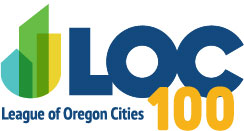LOC News
DEQ Releases Partial Draft Rules on Climate Protection Program
In advance of its May 25 Greenhouse Gas Rulemaking Advisory Committee (GHG RAC) meeting, the Oregon Department of Environmental Quality (DEQ) published Version 1 of its draft rules relating to the new Climate Protection Program (CPP). The CPP would carry out Governor Brown’s Executive Order 20-04, which includes directives to reduce greenhouse gas (GHG) emissions and address the effects of climate change. The objectives of the rulemaking are to:
- Establish a new program to set limits on greenhouse gas emissions from significant sources in Oregon, including large stationary sources, transportation fuels, and other liquid and gaseous fuels;
- Define regulatory applicability and program requirements; and
- Prioritize equity by promoting benefits and alleviating burdens for environmental justice and impacted communities.
Key Highlights of Version 1 of the Draft Rules
Covered Emissions
The CPP would cover anthropogenic GHG emissions from combustion of liquid fuels, propane, natural gas, and industrial processes. Emissions from the following would not be covered under the CPP: landfills, biofuels, fuels for aviation, natural gas delivered to a large electricity generating facilities, natural gas compressor stations, or any fugitive emissions.
Covered Entities
The draft rules would apply to:
- Non-natural gas entities that produce, import, sell, or distribute liquid fuels or propane in Oregon that result in GHG emissions when combusted are >= 200,000 MTCO2e;
- Natural gas utilities that produce, import, sell, or distribute natural gas in Oregon that result in GHG emissions when combusted; and
- Stationary sources (typically factories and industrial plants) with covered emissions that are >= 25,000 MTCO2e.
Compliance Mechanisms
The draft rules would require covered fuel supplier entities to comply with the cap set forth in the CPP. However, stationary sources would be subject to best available emissions reduction provisions of the CPP. Note: the DEQ is still in the process of creating more provisions related to stationary sources.
Under the draft rules, covered entities would be allotted compliance instruments that they would be allowed to use to meet the cap or trade with other covered entities. Each compliance instrument can be used to fulfill a compliance obligation equivalent to up to one metric ton of CO2 emissions.
The greenhouse gas rulemaking committee has been meeting since January and intends to wrap up its work in July. Following the rulemaking process, the DEQ plans to have an open comment period on the final version of proposed rules from August to October. The DEQ expects the Environmental Quality Commission to consider the proposed rules in December.
Read the version 1 of the draft rules
Contact: Jenna Jones, Legislative Analyst – jjones@orcities.org
Last Updated 5/28/21

